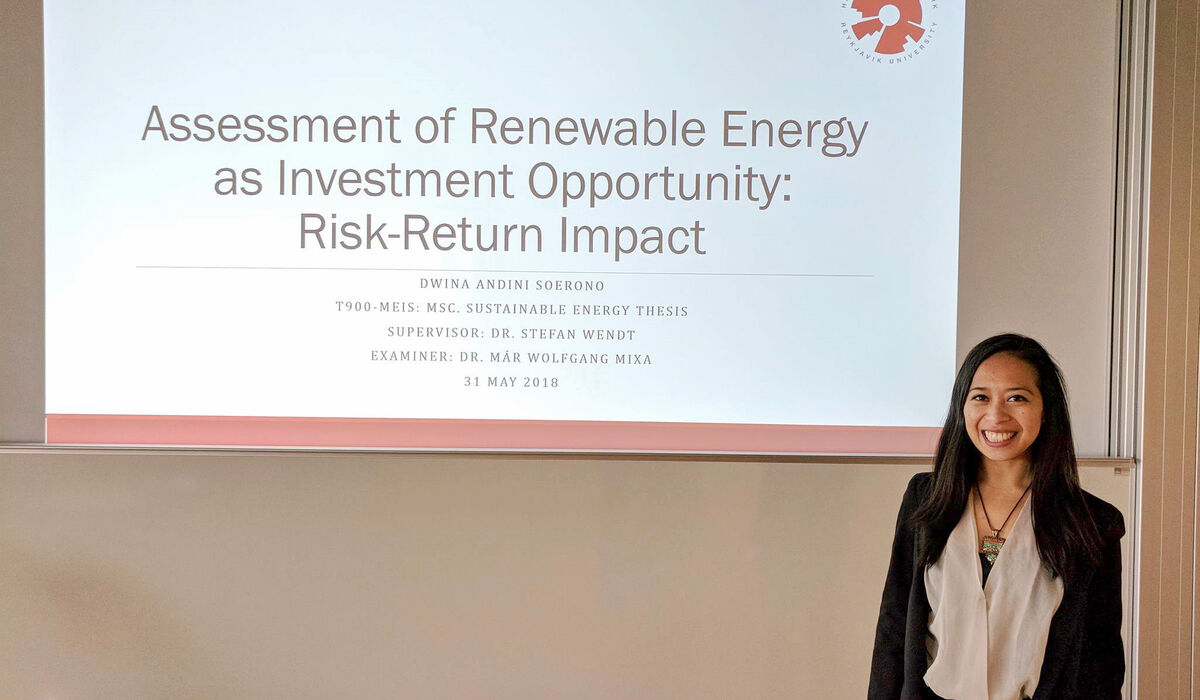MSc Thesis: Assessment of Renewable Energy as Investment Opportunity: Risk Return Impact
Dwina Andini Soerono successfully defends her master's thesis
REYKJAVIK, July 20 - MSc in Sustainable Energy Science, Dwina Andini Soerono successfully defended her master's thesis where she evaluates the long-term financial performance of renewable energy stocks as an investment opportunity for US investors. She aimed to better understand the financial risk and returns within the renewable energy sector as an investment opportunity, specifically for US institutional investors. Dwina's work was supervised by Stefan Wendt from Reykjavik University.

Growth in sustainable energy was spurred by the goal of limiting the global average temperature from rising more than 2 degrees Celsius. The increase of renewable energy implementation has simultaneously given rise to the question: Is renewable energy economically feasible? In her thesis, Dwina addresses this question by analyzing renewable energy stocks and non-renewable stocks and compares the two at 5, 10 and 20-year horizons.
Dwina used the Fama-French Five-Factor Model to compute abnormal returns of stocks in the energy sector and to measure sensitivity to variable factors of alternative and conventional energy stocks. The Fama-French multifactor models have been used to measure the performance of stocks in different industries, including energy stocks. The factors used in this model are size, value, profitability, investment and error of a stock or portfolio. Dwina used existing global energy indexes, including S&P Global Clean Energy, NASDAQ Clean Edge Green Energy, Wilder Hill Clean Energy and Thomson Reuters Global Renewable Energy as sample data. She converted the sample data to USD and ran the time series using the Fama-French Five-Factor Model and compared her results with current global benchmarks, t-tests, and non-parametric tests to verify accuracy.
In her studies, Dwina found alternative energy stocks perform better than conventional stocks during the 5 and 20-year horizons shown by the statistically significant positive differences in the mean and median values. She speculated this may be due to the Dot-Com bubble from 1998-2000 and the increased investment in renewables that occurred in 2015. This study acts as a step forward in understanding the economics of energy, specifically to assess the long-term financial performance of alternative energy stocks. To read more about Dwina's work, see the following link.
Congratulations, Dwina on an excellent thesis!
